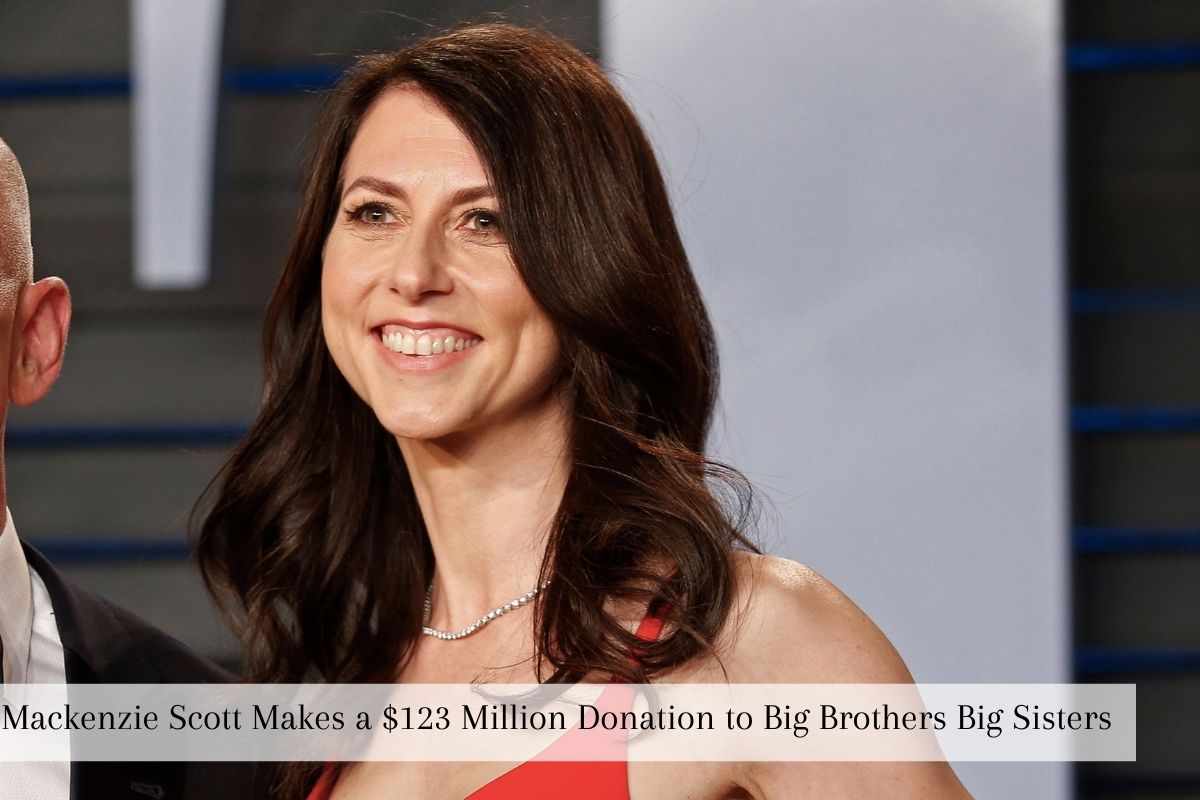Tuesday, the national charity for mentoring young people said that MacKenzie Scott gave $122.6 million to the group. The gift is the latest one that the billionaire author has given to large national nonprofits that do their work through local chapters in neighborhoods all over the country.
Scott has given a total of nearly $12.5 billion to at least 1,253 nonprofits since 2020. Many of these organizations work to help low-income and underserved people. Her most recent donation, to Big Brothers Big Sisters of America, comes after three other nine-figure gifts she made in March to large national charities with local branches.
These include $275 million to Planned Parenthood Federation of America for its national office and 21 of its local affiliates, $436 million to Habitat for Humanity International and 84 of its U.S. affiliates, and $281 million to Boys & Girls Clubs of America and 62 of its local chapters.
Read More: Shortage of Baby Formula Hits Low-income Families the Most
So far, Scott has given at least $1.5 billion in the first five months of 2022, according to the announcements of about 30 nonprofits. The donation is unrestricted, like almost all of Scott’s other gifts, so the charity can use it for programs, operations, or anything else.

“This is a moonshot for the work that we are going to do,” said Artis Stevens, the group’s CEO, who said it has spent the past two years designing a strategic plan for expanding its mentoring capabilities and was starting to devise fundraising efforts when Stevens received news of the gift last week. “Even though this gift is going to be transformative, one in three kids in this country don’t have a positive sustained mentor in their lives and so this challenge is bigger than one organization can take on. We know we have to be able to build a capacity both in our organization as well as partnering with others to take this on.”
Stevens says that the organization plans to use Scott’s donation for a number of things at its national office in Tampa, Florida, and at 38 of its 230 chapters around the country. Many of the families and young people the nonprofit helps come from underserved communities and were hit hard by the pandemic and recent social-justice struggles.
The organization has 30,000 young people waiting for a mentor right now. Stevens says that Scott’s gift will help the organization match more young people with mentors and offer more programs to train mentors. It also wants to get more people who are people of color, LGBTQ+, or live in rural areas to volunteer.
The nonprofit wants to offer more than just one-on-one mentoring for kids and teens. They plan to do this by making more group mentoring, peer-to-peer mentoring and mentoring in the workplace for 18- to 25-year-olds.
“We’re the largest provider of youth workplace mentoring in the country,” said Stevens. “We want to be able to expand and extend our vision to every company in America to have a youth-mentoring program that both helps supply more of the workforce and helps engage employees and give opportunities to kids in underrepresented, underserved communities.”
David DuBois, a professor at the University of Illinois who has studied mentoring programs for 30 years and worked as a volunteer mentor for Big Brothers Big Sisters for two years, says that they take a lot of money and staff time to run well.
“You’ve got to be able to support those relationships and check-in and make sure that all parties—the kid, the volunteer, the parents—are getting the encouragement and the guidance,” DuBois said. “So there’s a lot of moving parts to these programs.”
He said that a key part is that volunteer mentors have to go through a long process of interviews and checks before they can work with kids. Volunteers need to be trained, and then their relationship with the young person needs to be guided and watched over. It’s important to have enough money to do all of that.
Even though Scott’s gift is a big boost for the organization, Stevens says he knows it won’t be enough to do everything the charity wants to do. He and his team have already talked to the organization’s donors about what it will need in the future. Stevens says he sees the gift as an “invitation” to other donors to help the group’s plans for the future.
Tyrone McKinley Freeman, associate professor of philanthropic studies and director of undergraduate programs at the Indiana University Lilly Family School of Philanthropy, said that some donors might think that Big Brothers Big Sisters no longer needs their help after giving a big gift.
“There’s that kind of tension that organizations have long dealt with,” Freeman said. “It will be important to communicate how the resources are being used and what’s being done and then how (others) can continue to contribute—especially for something like this where the need outpaces the group’s volunteer base.”
Stevens said that he is talking to his other donors about these things right now.
He called the gift “awesome” and said, “It is life-changing for 38 of our agencies, but we have 230 agencies, and we know we have a lot more work to do.” In this country, there are more chances, more growth, and more needs. But more people need to be at the table. It takes everyone.”
Read More: Is BTS’s V Dating Blackpink’s Jennie?




